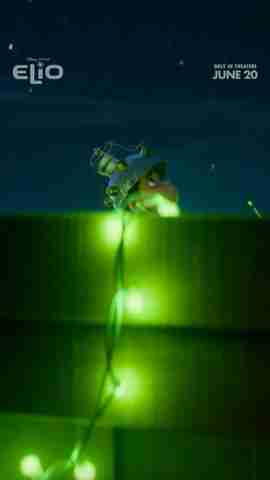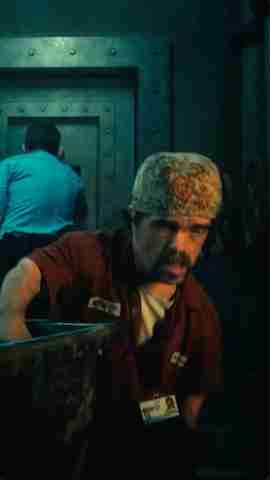Season 1 Episodes
1. What is Archaeology?
This course is about archaeology. But what exactly is “archaeology”? The word literally means “study of the ancient,” coming from a combination of two ancient Greek words archae and logos, but it has become its own historical and scientific field based on the discovery or rediscovery of the past through systematic investigation and excavation. It can be defined as the study of human cultures and history through the recovery, documentation and analysis of material remains, including architecture, artifacts, texts, and biological remnants.
2. The Impact of Archaeology
In the last session, we looked at the basics of what archaeology is and how excavation is done. But why even bother doing archaeology? All that research and excavation is difficult, time consuming, and expensive. So why is archaeology important? The basic answer is that archaeology provides us with a window into the past through objective evidence that you can see and touch. The people who write history ultimately get their information from archaeology, whether that be through new information about a rediscovered city, the translation of an ancient text, or artifacts that help us better understand a particular civilization or time period. Without archaeology, we would only know scraps of information about ancient civilizations, people, technologies, beliefs, and languages that have been handed down in books which happened to be preserved over the centuries.
3. Locating Archaeological Sites
So far, we have looked at a few major discoveries of archaeology, and learned that archaeologists and historians have been excavating ancient sites around the world since the middle of the 19th century. But what have they found, and “who” have they found? Archaeologists excavate houses, forts, palaces, temples, tombs, and even entire cities, but is there evidence left behind of the actual people, and not just buildings or objects? What about all of those people mentioned in ancient historical texts like the Bible? Have their tombs been discovered, or are there any artifacts that attest to their existence in ancient times? In many cases, yes! In fact, archaeological evidence for hundreds of people from ancient times has been discovered.
4. The Life of an Archaeologist
What does an archaeologist actually do day to day? Unlike the movies, archaeologists aren’t routinely running into ancient temples or tombs, stuffing artifacts into their backpack, and then running out as fast as they can while evading traps. However, if someone does try to loot an archaeological site, they should know that they will be pursued not by traps or mummies, but by the police! Archaeologists also don’t spend all of their time digging at a site, because not only is this time consuming and expensive, but there needs to be sufficient time to analyze the finds, to publish what has been discovered, and to research archaeological “mysteries” or historical puzzles.
5. What's Being Discovered Today?
Earlier, we asked a question of whether or not almost everything has already been excavated and found. The answer was no! But what is being found today? Even though archaeologists have been researching, exploring, and excavating for over 150 years, important and interesting discoveries are being found every year, including archaeological sites and artifacts related to the Bible!
6. Archaeological Mysteries
Are there any archaeological “mysteries” out there associated with the Bible that have yet to be found, understood, or are in the process of being solved? Yes! All of these mysteries are being investigated, and many of them are even being solved either through surveys, digs, research on artifacts in the basements of museums, or through translation and analysis of ancient manuscripts! Some of the most well-known archaeological and historical mysteries connected to the Bible include the Ark of the Covenant, the landing location of Noah’s Ark, the destroyed cities of Sodom and Gomorrah, the Pharaoh during the time of Joseph, the route of the Exodus and location of Mount Sinai, the site of Ai and evidence for the Joshua conquest, additional Dead Sea Scroll caves, the precise location of the crucifixion of Jesus, and details related to the martyrdom of Peter.
7. Top Discoveries in Bible Archaeology
We have covered a lot in the first half of our series, from the basics of archaeology, to using ancient texts in archaeology, to archaeological discoveries linked to the Bible. Speaking of archaeology and the Bible, there have been many incredible finds over about the last 150 years, which have changed our understanding of ancient history and Biblical passages and caused many people to change their opinions about the historical reliability of the Bible. In our previous lessons we have covered a few of these, but there are many more that could also be studied. If there were a “Top 25” archaeology discoveries related to the Bible, what might those be?
8. Getting Involved with Archaeology
If you have an interest in archaeology, you might be wondering how you can get involved with archaeological work, or even how to prepare for a career in archaeology. To lay the groundwork for future involvement in archaeology, there are several other things you can do to continue learning the basics: reading books and articles on archaeology, watching educational videos about archaeology and history, visiting museums with archaeological artifacts (archaeology museums, history museums, art museums), visiting archaeological sites, and eventually volunteering on an archaeological excavation.
9. Trends in Archaeology
The view of “Biblical Archaeology” has basically changed according to how the view of the Bible in society has changed, and how the influence of Christianity has changed. Many years ago, most people in the United States thought that the Bible was a book that accurately recorded a lot of historical events, even if they did not believe in the spiritual teachings of the Bible. However, today most people think the Bible is just an outdated book of old ideas and fairy tales that no educated person would believe. Because of this, “Biblical Archaeology” is considered by many to be an obsolete field that is invalid due to its bias. For those who still consider it a legitimate field, many of those scholars instead see the discoveries and research of Biblical Archaeology as primarily finding new evidence or theories which supposedly demonstrate that the Bible is religious propaganda and full of historical errors.
10. Weird Archaeology
Real archaeology isn’t exactly an Indiana Jones movie, but neither is it just monotonous digging holes in the dirt or reading dusty books in a quiet library. While there can be a lot of hard work involved in archaeology, excavating pottery over and over again, and rediscovering the artifacts and architecture of everyday life, there are also many things found in archaeology that can be described as “weird.” You have probably seen some documentary, tv show, or movie that claims aliens built an impressive ancient monument or brought complex written language to humans, such as the pyramids of Giza and the system of Egyptian hieroglyphs. As weird and ridiculous as that may sound, there are many discoveries in archaeology that are legitimate and weird—unexplained or just outright strange.
11. Accidental Discoveries in Archaeology
There is no doubt that dedicated research, meticulous excavation, scientific analysis, and application of technology aids in the discovery of important archaeological sites, artifacts, and information. However, sometimes incredible archaeological finds are made by accident, which tells us that even the complete novice might stumble upon the discovery of a lifetime. You have probably heard of the Lascaux Cave paintings, the Rosetta Stone, the Xian Terracotta Army, the Dead Sea Scrolls, the Lyceum of Aristotle, and the Venus de Milo. What do all of these incredible finds have in common? They were not discovered by a professional archaeologist as the result of an archaeological project, but all were accidents!
12. What's Left to be Discovered
Many people think that nearly everything has already been excavated, so what we haven’t yet found will probably never be found, unless it was hidden away in some secret passage or cave. But this isn’t the case at all! First of all, rarely is anything significant discovered in a random, isolated cave—the Dead Sea Scrolls, Nahal Mishmar Treasure, and the Lascaux Paintings are great exceptions. However, archaeological sites all over the world are still waiting to be discovered, and many of those that have been found sit there unexplored.

















